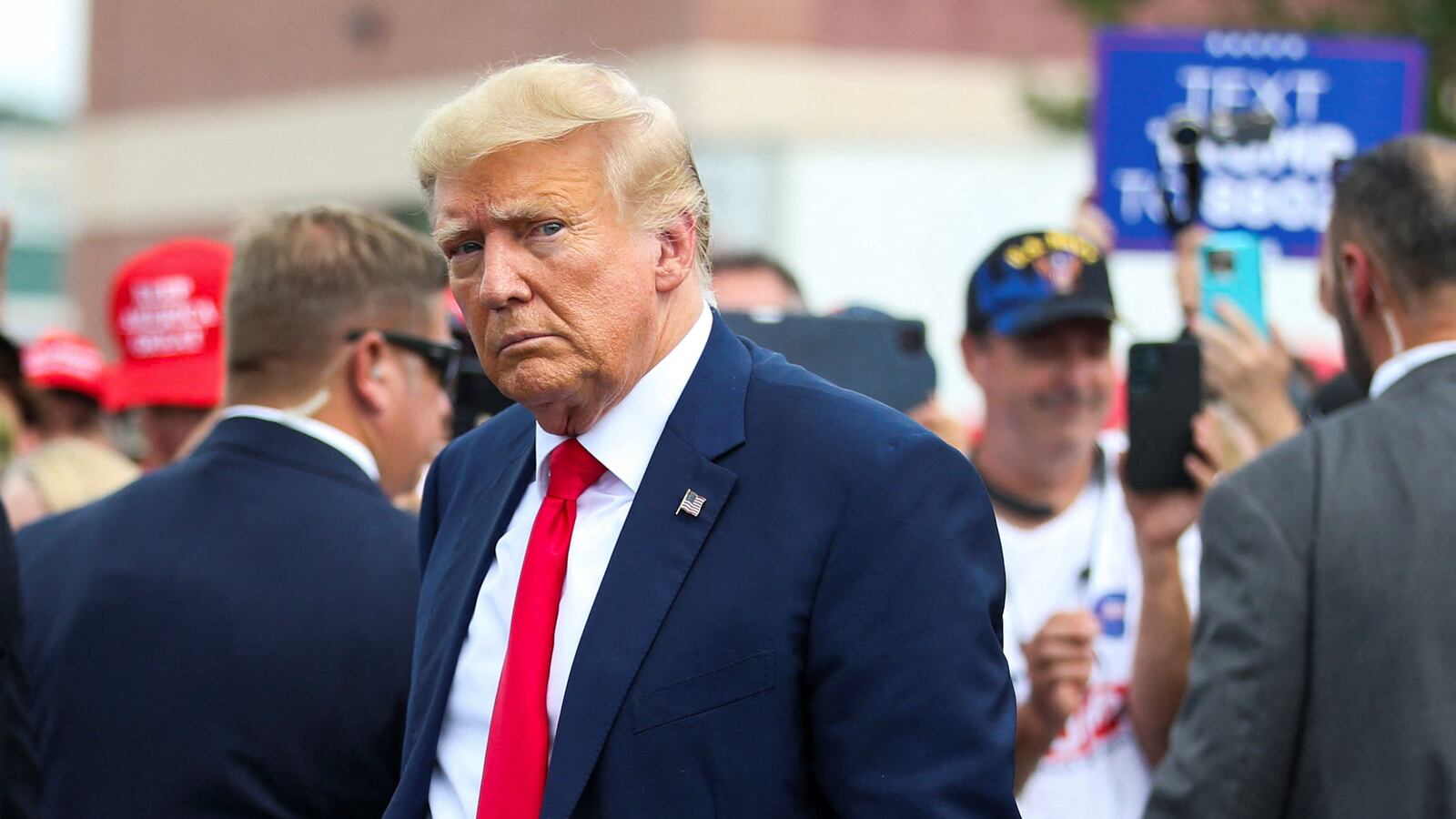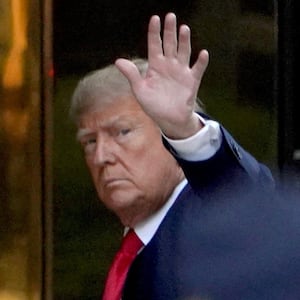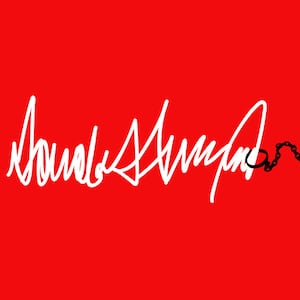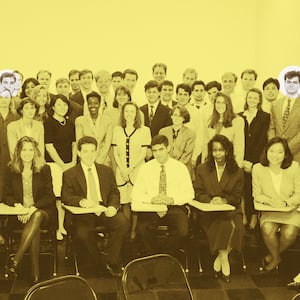A federal judge on Tuesday resoundingly rejected former President Donald Trump’s desperate attempts to pluck his porn-star-hush-payment indictment away from New York’s state courts, ensuring that the case will remain before the same local judge who sentenced the Trump Organization for tax fraud earlier this year.
Capping a three-hour hearing that included a surprise witness, U.S. District Judge Alvin K. Hellerstein said he’d heard enough—and indicated he would issue a ruling against Trump in the coming days.
That means Manhattan District Attorney Alvin Bragg Jr. can continue his historic case—the first for a local DA against a former American president—at the very same downtown courthouse where he recently scored a victory against Trump’s family company.
And it all comes down to a point that’s been made in court again and again: Trump can’t hide behind the White House podium any longer.
Trump’s lawyer, Todd Blanche, failed to convince Hellerstein on Tuesday that the DA’s case raises specific legal issues that are better handled in federal court—like matters relating to whether a president can be sued for conduct relating to his official duties or committing federal crimes, as opposed to local ones. Instead, the judge said all of the crimes Trump’s accused of relate directly to his personal issues.
“There’s no relation to any act of the president,” Hellerstein said from the bench, describing Trump’s relationship to the lawyer who broke the law by paying off the porn star to a “private hiring.”
Trump was indicted in March and arrested the next month over the way he schemed with then-lawyer Michael Cohen to save his 2016 presidential campaign by paying hush money to the porn star Stormy Daniels to keep her from going public about their brief, extramarital affair nearly a decade earlier. The Manhattan DA charged Trump with 34 felony counts that accuse him of faking business records to hide the hush money–and all of the handsome reimbursements he gave Cohen.
Cohen went to federal prison over the ordeal in 2019, but the feds never charged Trump, who was still president at the time. Bragg’s predecessor, Cyrus Vance Jr., picked up the slack with a long-running investigation that culminated in Bragg convening a grand jury that eventually indicted Trump—but one that arguably should have always been a federal case to begin with.
And that has been partially fueling Trump’s attempts to get this into the federal court system.
Trump has been desperately trying to avoid Justice Juan Merchan, a state court judge who’s already presided over the criminal trial where a jury convicted the Trump Organization of tax fraud. Although Merchan has largely kept his cool with Trump’s raucous lawyers and the former president’s relentless barrage of personal attacks against the judge’s own family, he has steadily tightened Trump’s leash by restricting how the former president can access documents in his own case.
Although Manhattan DA cases normally stay in New York state court, Trump tried to remove the case to federal court in May—a ploy that, if successful, would have sent any appeals to a Supreme Court where Trump appointees make up three of the nine justices.
A month after his indictment, Trump's lawyers asked a federal judge to seize control of the case, writing that it “involves important federal questions since the indictment charges President Trump for conduct committed while he was President of the United States,” and claiming that his actions somehow fall “within the ‘color of his office.’”
The claim that Trump was actually acting in an official capacity when he was misbehaving has become a go-to defense in recent years. When the journalist E. Jean Carroll initially accused him of rape and he called her a liar from the White House, he tried to find cover from her subsequent defamation lawsuit by adopting the argument that he was working within his constitutional role as president and was thus immune from lawsuits.
And earlier this year, the Department of Justice snatched that excuse away from him in a separate matter when it took the position that he acted improperly by urging his followers to attack Congress in 2021, saying that Trump can’t shield himself with sovereign immunity because “such incitement of imminent private violence would not be within the outer perimeter of the Office of the President of the United States.”
On Tuesday in court, Trump’s lawyers tried to portray his hiring of Cohen as his personal lawyer while he was at the White House as an official act—something that the federal judge repeatedly batted away impatiently. At one point, Hellerstein said Trump’s decision to privately hire Cohen to deal with personal matters only emphasizes just how much this arrangement was unrelated to government matters.
“It doesn’t lower the suspicion; it raises it,” Hellerstein said.
The judge seemed increasingly exasperated the more he repeated the details of that odd arrangement—how Trump paid Cohen $420,000 as reimbursement for the $130,000 hush money payment but disguised it as a monthly retainers fee—for legal work the DA says never really happened.
Matthew Colangelo, a top prosecutor on the DA’s team, said in court that this case is about “personal payments from personal accounts to a personal attorney handling his personal affairs.” And he undercut Trump’s current ploy by citing several examples of Trump himself—and associates like his other lawyer, Rudy Giuliani—repeatedly claiming years ago that the hush money payment was merely a “personal” dispute.
A second issue raised on Tuesday initially showed more promise: that Bragg’s case is really a federal one in disguise. As Trump’s lawyers put it in legal papers, “the charges involve alleged federal and state election law violations,” which often allows the federal courts to preemptively take control.
“If there was no federal elections violation, then there is no crime… and that’s exactly why it belongs in this courthouse, not across the street,” Blanche said.
The DA’s office pushed back on that, arguing that Trump committed a New York crime by merely intending to break the law—even if that law was ultimately a federal one: masking a campaign expense to avoid embarrassment for paying off a porn star. While Hellerstein said little about that, he seemed convinced that the state charge can hold up on its own.
But that’ll be for Merchan to decide at trial sometime next year, much to Trump’s chagrin.








